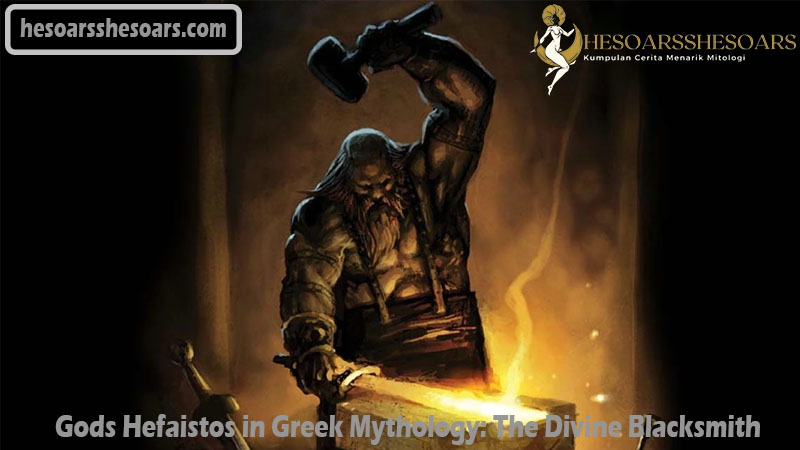Introduction Gods Hefaistos
Greek mythology is replete with a pantheon of gods and goddesses, each with their unique attributes and stories. Among these deities, Hephaestus, the god of blacksmiths, craftsmen, and artisans, holds a special place. Hephaestus’ tale is a fascinating journey of resilience and creativity, making him an intriguing figure in Greek mythology. In this article, we will delve into the world of Hephaestus and explore his significance in Greek mythology. (Gods Hefaistos)
The Birth of Gods Hefaistos
Hephaestus was born to Hera, the queen of the gods, but his birth was far from ordinary. According to one version of the myth, Hera gave birth to Hephaestus without the involvement of a father, making him one of the few gods born solely from a mother. However. His birth was. Marked by his mother’s disappointment in his appearance. She found him ugly and deformed and threw him from Mount Olympus, the realm of the gods, into the sea below.
Hephaestus’ Resilience
Despite his inauspicious birth. Hephaestus survived. And was. Raised by sea nymphs, Thetis and Eurynome. During his time under their care, he honed his craft and developed his remarkable skills as a blacksmith and artisan. His ability to create intricate and awe-inspiring objects became his defining characteristic.
Hefaistos Returns to Olympus
Hephaestus’ talents soon caught the attention of the gods on Mount Olympus. To secure his return, he crafted a magnificent throne for Hera, his estranged mother. The throne, however, contained hidden restraints that trapped Hera when she sat in it. Hephaestus used this opportunity to negotiate his return to the divine realm in exchange for her release. This event marked his triumphant return to Olympus.
The Divine Blacksmith
Hephaestus was renowned as the divine blacksmith, and his forge was located beneath Mount Olympus. There, he created the most extraordinary weapons and artifacts for the gods, including Zeus’ thunderbolts, Athena’s shield, and Achilles’ armor. His craftsmanship was unparalleled, and his work was marked by precision and beauty.
Hephaestus’ Role in Greek Myths
Hephaestus’ presence is felt in several Greek myths and stories. In the myth of Prometheus, he was responsible for crafting the chains that bound Prometheus to a rock as punishment for stealing fire from the gods and giving it to humanity.
One of the most famous myths involving Hephaestus is his marriage to Aphrodite, the goddess of love and beauty. Despite his appearance, Hephaestus married Aphrodite, and their tumultuous relationship is a recurring theme in Greek mythology. Aphrodite had numerous affairs, including one with Ares, the god of war, which Hephaestus discovered. In response, he devised a cunning trap that publicly exposed their affair to the gods, leading to their humiliation.
Legacy of Hefaistos
Hephaestus’ legacy extends beyond Greek mythology. He represents the qualities of creativity, craftsmanship, and resilience. His association with the art of blacksmithing and forging has left a lasting impact on various cultures. In Roman mythology, he was known as Vulcan, and his influence continued in Roman society as well.
In contemporary culture, Hephaestus’ character and attributes continue to inspire artists, writers, and creators. The concept of a skilled and inventive artisan who overcomes adversity is a timeless and relatable theme.
Conclusion Gods Hefaistos
Hephaestus, the god of blacksmiths and craftsmen, is a compelling figure in Greek mythology. His journey from an abandoned child to a revered deity showcases the themes of resilience and creativity. Hephaestus’ contributions as a divine blacksmith and his presence in various myths have cemented his place in Greek mythology and continue to influence art, literature, and culture to this day. His story serves as a testament to the enduring power of creativity and the human spirit.




